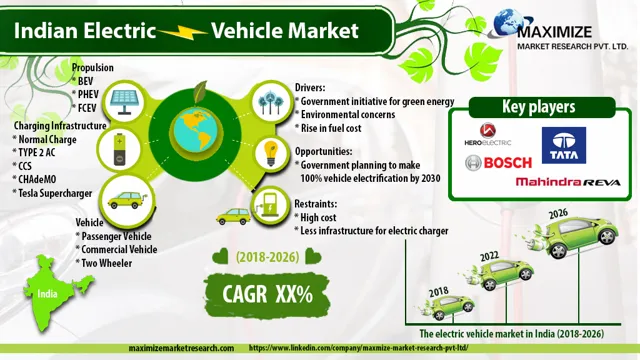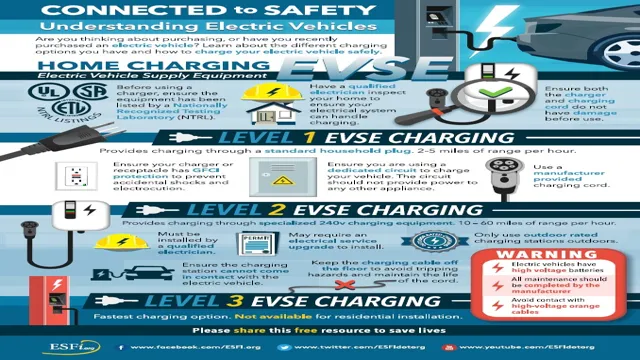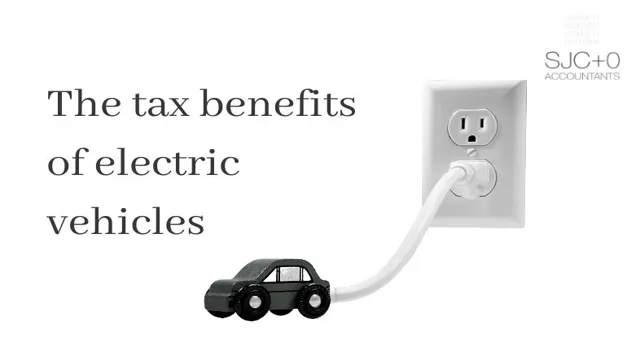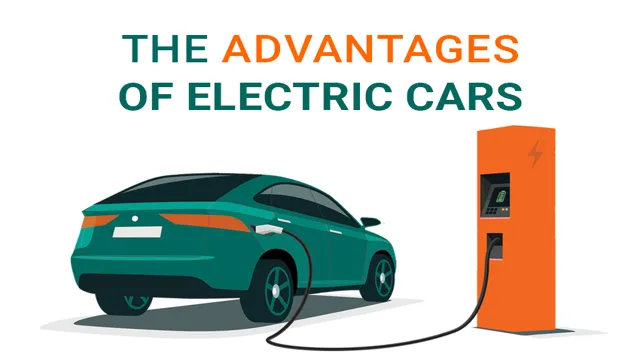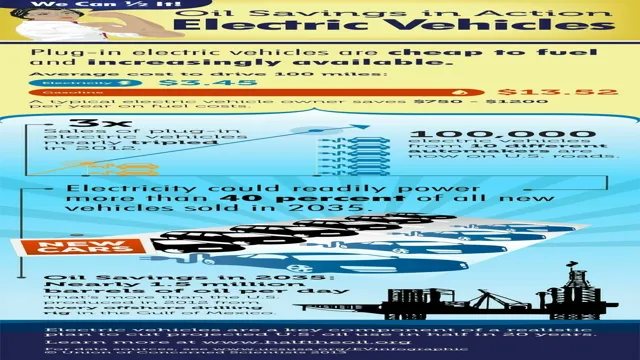Revolutionizing Mobility: The Electric Car Revolution and Its Benefits for India
Electric cars have been gaining popularity in India in recent years due to their numerous benefits. Not only do they help reduce air pollution, which is a major issue in many cities in the country, but they also offer several financial advantages. With the government’s push towards electric mobility, more and more indigenous electric cars are making their way to Indian roads, making them a viable alternative to traditional petrol and diesel vehicles.
In this blog post, we will explore the various benefits of electric cars in India and why they are a game-changer for the country’s transport sector. So buckle up, get ready to learn about a new era of transportation, and join the green revolution.
Reduced Pollution
One of the biggest benefits of owning an electric car in India is reduced pollution. As a developing country with high levels of air pollution, switching to electric cars can have a significant impact on the environment. Electric cars do not emit harmful pollutants like carbon dioxide, nitrogen oxides, and particulate matter, unlike traditional petrol and diesel cars.
This means that by choosing to drive an electric car, you are not only reducing your carbon footprint but also contributing to cleaner air for everyone. Additionally, electric cars have the potential to reduce noise pollution as they operate much more quietly than traditional cars. So not only are electric cars beneficial for the environment, but they also contribute to a more peaceful and enjoyable driving experience.
Overall, electric cars offer a variety of benefits, but reducing pollution is arguably the most significant benefit that makes them a smart and sustainable choice for India’s future.
Lower Emissions
Lower emissions are not just good for the environment but also for our health. If we reduce pollution from cars and factories, it can significantly improve air quality, reducing the risk of respiratory diseases and other related health issues. Cutting down greenhouse gas emissions can also slow down global warming, which can result in catastrophic weather events such as floods and droughts.
In addition, lower emissions can reduce the dependence on fossil fuels, which are a limited resource, and can lead to energy security and independence. Implementing renewable energy sources such as wind or solar power can also create new job opportunities and boost the economy. By taking action to reduce emissions, we can ensure a better, cleaner, and sustainable future for ourselves and generations to come.
So, let’s work together to lower emissions and reduce pollution for a healthier and safer planet.
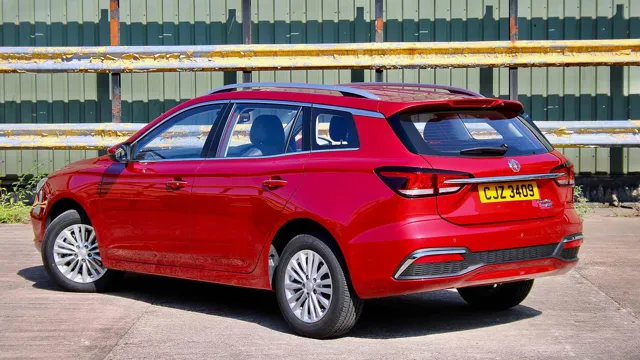
Improved Air Quality
Reduced Pollution Reducing pollution has a direct and positive impact on improving air quality. The negative effects of pollution on our health and the environment are widely documented, and taking steps to limit pollution can make a big difference. One way to reduce pollution is to drive less or switch to an electric or hybrid vehicle.
When we drive less or choose cleaner options, we reduce emissions that contribute to air pollution. Another way to reduce pollution is to support renewable energy sources, such as wind and solar power, which emit far less pollution than traditional power sources like coal. Small changes can have a big impact – for instance, choosing to limit your use of single-use plastics can reduce the amount of plastic waste that ends up in the ocean, polluting marine life and disrupting entire ecosystems.
By reducing pollution and striving for sustainable practices, we can help improve air quality and make a positive impact on the planet.
Savings on Fuel Costs
Electric cars have many benefits in India, and one of the most significant is the potential savings on fuel costs. With traditional gas-powered cars, the cost of gasoline can quickly add up, especially with the fluctuating fuel prices in India. However, electric vehicles use electricity as their source of power, and the cost of charging an EV can be significantly lower than traditional fuel costs.
Moreover, many EV owners in India can take advantage of charging stations located at various locations throughout the country, from shopping malls to public parking lots. Not only will you save money on fuel costs, but electric vehicles also require less maintenance and are more environmentally friendly than traditional gas-powered cars. Therefore, if you’re looking for a sustainable and cost-effective way to commute or travel around India, an electric car could be the perfect solution.
Lower Operating Costs
Lowering operating costs is a top priority for any business owner, and one of the most effective ways to accomplish this is by reducing fuel costs. With fuel prices constantly fluctuating, it’s essential to have a strategy in place to minimize expenses without sacrificing productivity. By investing in newer, more efficient vehicles and monitoring fuel consumption, companies can significantly reduce their expenses.
In addition to saving money on fuel, these strategies can also reduce maintenance costs and improve overall performance. Ultimately, reducing fuel costs is an excellent way to improve the bottom line and stay competitive in today’s fast-paced business world. So, if you’re looking to lower operating costs, start by taking a close look at your fuel usage and find ways to cut back wherever possible.
Your business will thank you for it in the long run!
Tax Benefits
One of the significant tax benefits of driving a fuel-efficient vehicle is the substantial savings on fuel costs. Whether you own a hybrid vehicle or an electric car, you can save a significant amount of money on gas expenses. Typically, the calculation of your tax benefit is based on the vehicle’s fuel efficiency rating, which determines the federal income tax credit you may be eligible for.
For instance, as an electric vehicle owner, you could be eligible for a federal tax credit of up to $7,500, depending on the car model and battery capacity. This tax credit can help offset the initial cost of purchasing the vehicle and can help you save significantly on fuel costs throughout the vehicle’s lifetime. Additionally, depending on the state you live in, you may also be eligible for further tax incentives like lower state sales taxes or excise taxes, further decreasing your overall vehicle expenses.
By investing in a fuel-efficient vehicle, not only can you save money on fuel costs, but you can also reap the benefits of significant tax benefits both federally and sometimes at the state level, too.
Efficient Performance
Electric cars offer many benefits for people in India, and one of the biggest ones is their efficient performance. Electric cars are much more efficient than traditional gasoline-powered cars, which means they use less energy and are cheaper to operate. This is especially important in India, where gasoline prices are high and many people have limited budgets.
Not only are electric cars more efficient, but they also produce zero emissions, which is great for the environment. Additionally, electric cars require less maintenance than traditional cars, as they have fewer moving parts and don’t require oil changes or other regular maintenance. Overall, electric cars offer a number of benefits that make them a great choice for anyone looking for a more efficient and environmentally-friendly way to get around in India.
Smarter Technology
Smarter Technology As technology advances, we have seen a significant improvement in performance efficiency. Smarter technology has been designed with the optimal goal of meeting users’ needs. High-performance processors and faster broadband connectivity have opened more doors for us in terms of personal and professional communications.
The Internet of Things (IoT) is an excellent example of how smarter technology transforms our everyday lives. With IoT, we can link devices to the internet and control them remotely. For instance, we can control temperature and light at our homes using our smartphones.
The smarter technology environments are also increasingly benefiting businesses by streamlining processes, improving supply chain operations, and keeping track of inventory. As a result, the adoption of smarter technology is expected to increase in the coming years, promising even greater efficiency and reliable service. It’s a game-changer for societies across the globe.
So, are you ready to embrace smarter technology, which offers more efficiency and improves performance?
Long-lasting Durability
When it comes to purchasing a product, we all want something that will last a long time. That same principle applies to technology, which is why the durability of a device is such an important factor. When looking for a device with long-lasting durability, it’s important to consider the materials it’s made from and the engineering behind it.
The key to achieving efficient performance is designing a device that can withstand regular wear and tear without sacrificing quality. It’s like buying a reliable car, one that will get you from point A to point B without any hiccups. Investing in a device that can keep up with your day-to-day needs will not only save you money in the long run but will also give you peace of mind, knowing that you won’t have to replace it anytime soon.
So, the next time you’re in the market for a product, make sure you consider its durability, and remember that efficiency and longevity go hand in hand.
Government Incentives
If you’re thinking about purchasing an electric car in India, you’ll be pleased to know that there are several government incentives available to reduce the cost of ownership. The central government offers a subsidy of up to Rs.
5 lakh for electric cars costing less than Rs.15 lakh. Additionally, some states provide additional incentives such as exemption from road tax, registration fees, and reduced electricity tariffs for charging.
However, it’s worth noting that these incentives vary from state to state and are subject to change periodically, so be sure to check with your local authorities before making a purchase. Overall, electric cars in India are becoming increasingly popular due to their affordability and eco-friendliness, and with the government providing further incentives, there’s never been a better time to consider switching to electric.
FAME II Scheme
The FAME II Scheme is a government initiative to promote the adoption of electric vehicles (EVs) in India. Under this scheme, the government provides incentives to EV buyers as well as to manufacturers producing EVs. The scheme aims to reduce the dependency on fossil fuels and promote sustainability by encouraging the use of eco-friendly vehicles.
With this scheme, the Indian government is hoping to increase the sales of EVs in the country and achieve its target of having 30% of the vehicles on the road run on electricity by 2030. These incentives include subsidies for both EV buyers and manufacturers of EVs. The government also offers a loan to manufacturers who want to set up charging infrastructure in the country.
This is a significant step towards creating a more sustainable future for India.
State-level Incentives
One of the most effective ways the government supports the growth of a renewable energy market is through state-level incentives. These incentives can come in the form of tax credits, rebates, grants, and other financial benefits that encourage individuals, businesses, and organizations to invest in renewable energy solutions. For example, some states offer tax credits for homeowners who install solar panels on their homes, or for businesses that invest in wind turbines or other renewable energy infrastructure.
Additionally, state governments may provide grants to local communities that implement energy efficiency and conservation measures, such as upgrading public buildings with more efficient lighting or heating systems. By incentivizing the adoption of renewable energy, state governments can help reduce greenhouse gas emissions and promote a more sustainable future for all.
Conclusion
In conclusion, the benefits of electric cars in India are not just confined to their eco-friendliness and affordability, but also their ability to propel India towards a brighter, sustainable future. By reducing our dependence on fossil fuels, electric cars will help us combat climate change and air pollution, while also promoting self-reliance and innovation in the Indian automobile industry. So, if you’re looking for a ride that’s fast, efficient, and has a positive impact on the environment, look no further than an electric car! It’s time to charge up for a better tomorrow!
FAQs
What are the benefits of electric cars in India?
There are several benefits of electric cars in India, including reduced air pollution, lower fuel costs, and government incentives.
How much money can I save by switching to an electric car in India?
The amount of money you can save by switching to an electric car in India depends on several factors, including the cost of electricity in your area and your driving habits. However, studies suggest that electric cars can be cheaper to operate than gasoline-powered cars.
Are there any government incentives for buying an electric car in India?
Yes, the Indian government offers several incentives for buying an electric car. These include a GST exemption, a lower registration fee, and a subsidy on the purchase of an electric car.
Are there any drawbacks to owning an electric car in India?
Some potential drawbacks of owning an electric car in India include a lack of charging infrastructure in some areas and a higher upfront cost compared to gas-powered cars. However, many electric car owners find that the benefits outweigh these drawbacks.
